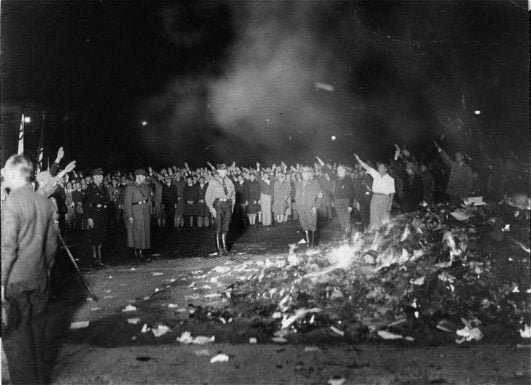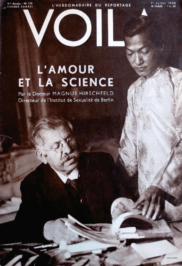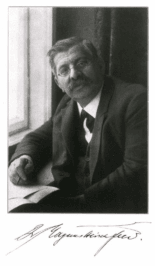
Exhibition Honours Gay Movement Pioneer
This year marks the 85th anniversary of Dr. Magnus Hirschfeld's visit to San Francisco. Starting in the late 1890s, Hirschfeld was a groundbreaking defender of homosexual and transgender people in Germany and beyond.
He was internationally renowned as a founder of the Scientific-Humanitarian Committee, the world’s first homosexual advocacy group, and as creator of the Institute for Sexual Science in Berlin. Both organisations were banned when the Nazis came to power in 1933. Hirschfeld died in exile three years later.
In a new exhibition opening on August 19, the GLBT History Museum offers an introduction to Hirschfeld’s life, work and legacy. “Through Knowledge to Justice: The Sexual World of Dr. Magnus Hirschfeld (1868-1935)” features first editions, vintage periodicals and ephemera largely drawn from the collection assembled by curator Gerard Koskovich over the past three decades. In addition, the exhibition will include historic film documenting Hirschfeld’s impact and the fate of his work.
“Although the Nazi regime did its best to erase the memory of Hirschfeld and his contributions, it didn’t succeed. We remember Hirschfeld today not only because he helped found the movement to defend LGBTQ people more than a century ago, but also because his work as a sexologist was prescient,” Koskovich said. “With its emphasis on ‘sexual intermediacy,’ Hirschfeld’s thinking prefigures contemporary ideas about the continuum of sexual orientation, genderqueer expression and sexual fluidity.”
-

- The first book-burning of the Nazi regime was held on the Opera Square in Berlin on May 10, 1933. The library of the Institute for Sexual Science was among the materials consigned to the flames. Photo: U.S. National Archives and Records Administration.
-

- Dr. Magnus Hirschfeld and his partner Li Shiu Tong shortly after arriving in exile in France (1933); cover of the weekly magazine Voilà (July 1, 1933). Collection of Gerard Koskovich; courtesy GLBT Historical Society.
-

- A Nazi student and a member of the SA plundering the Institute for Sexual Science in Berlin (May 6, 1933). Photo: U.S. National Archives and Records Administration.
-

- An autographed portrait of Dr. Magnus Hirschfeld (1926); frontispiece of volume one of Hirschfeld’s five-volume survey of sexual knowledge, Geschlechstkunde (Stuttgart: Julius Püttman Verlag, 1926). Collection of Gerard Koskovich; courtesy GLBT Historical Society.
-

- Expressionist illustration of the Institute for Sexual Science in Berlin (circa 1930); artist unknown. Reproduced from Perles-Titus (Berlin-Pankow: Titus), a booklet promoting a patent medicine for sexual rejuvenation developed by Dr. Magnus Hirschfeld. Collection of Gerard Koskovich; courtesy GLBT Historical Society.
Among the scarce artefacts that will be displayed at the GLBT History Museum is the 1898 booklet including the Scientific-Humanitarian Committee’s petition calling for repeal of Germany‘s sodomy law; one of the handful of volumes known to have survived the first book-burning of the Nazi regime, where the library of Hirschfeld’s Institute for Sexual Science was consigned to the flames; and a review copy of the last of Hirschfeld’s books published during his lifetime, inscribed by the author three weeks before his death.
“Through Knowledge to Justice” opens August 19 and runs through November 23 at the GLBT History Museum, located at 4127 18th St. in the Castro district in San Francisco. The museum is open Monday through Saturday, 11:00 a.m. – 6:00 p.m. Admission is $5.00; $3.00 for California students with I.D.; free for members. An opening reception will be held on Friday, August 19, 7:00 – 9:00 p.m. Admission: $5.00.
For more information, visit www.glbthistorymuseum.org.
Photo courtesy GLBT Historical Society







